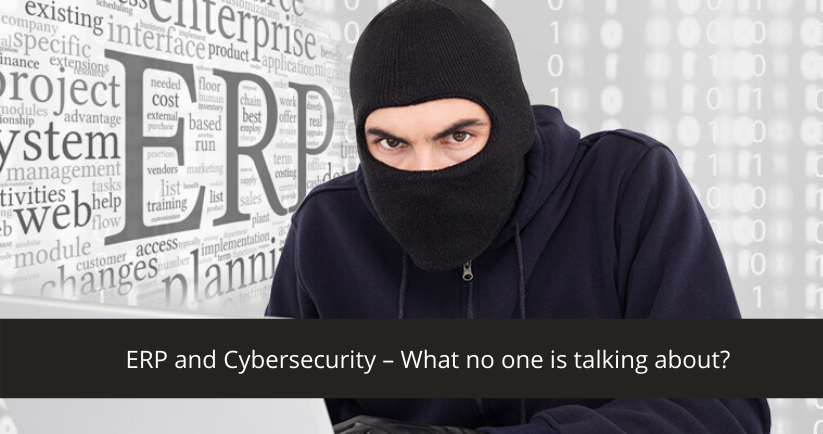ERP is like a lifeblood for businesses when it comes to bridging various operations and processes such as inventory, warehouse, logistics, accounting, manufacturing, etc. In other words, ERP software has been serving as the backbone for a good number of businesses across the worldwide.
Now as we know that an ERP system contains confidential data about a company’s operations, processes, sales, employees, customers, vendors, partners, etc., there has to be robust security algorithms and processes/measures in place to safeguard all the sensitive data it stores, maintains and processes. Yes, even a minor breach may not only affect the system, but can also throw a business off the track in no time. And yes, ERP systems are vulnerable to cyberattacks with industry experts projecting these attacks to go up by 30% in the near future. This is the reason it is imperative for a business to include cybersecurity as an integral part of their ERP investment and strategy.
What makes ERP a hot favourite among hackers?
Cybercriminals are well aware of the fact that ERP systems contain the most credible and valuable data for a business. They are also aware of the various weak points to enter or rather we should say breach the system. Unfortunately, many businesses fail to understand this evident fact and fall to cyberattacks.
Another key reason why ERP solutions are a hot favourite among hackers is the fact that many organisations tend to snub cybersecurity audits and checks thus, failing to identify underlying weak and/or vulnerable entry points.
Now this is true for cloud based ERP systems, since they are accessed by various users, locations and through varying platforms. Next, legacy ERP solutions are a huge turn on for cybercriminals, since these systems simply fall flat when it comes to combating modern day security threats.
Why cybersecurity needs to be an integral part of your ERP investment?
-
- First things first, a business ought to keep its antivirus, anti-malware, firewalls and ERP software up-to-date without fail. Further, it is advisable to run vulnerability assessment audits or tests on a regular basis to identify and uproot any underlying weak entry points. Software updates/upgrades help to fix bugs or weak spots. Failing to upgrade your ERP system increases the software’s vulnerability to a range of cyberattacks.
- Next comes the human aspect, which is undoubtedly the most critical factors of all. Yes, hackers and cybercriminals often attempt to fool or trick the employees i.e. the actual users of the software through various methods and social engineering being one of them. This is the reason it is highly advisable to train and educate your employees, stakeholders and all the users of the system about various phishing techniques, safe habits, malware, etc.
- If your employees telecommute on a regular basis, then it is important to consider about encryption to safeguard your ERP data from potential hackers and attackers. Next, well-controlled access to the ERP system would make it difficult for hackers to target weak entries or points. Long story short, having control access and admin rights to the system would help curb the risk to a great extent.
- Last but not the least, a business that fails to have an incident and response plan in place simply makes it ERP system vulnerable to a pool of cyber threats. Any attempts that you make to protect your ERP data would go in vain and will be futile if fail to have a cyber incident response plan in place
Takeaway
Today, it is impossible to think of an ERP software without cybersecurity. Hackers and cybercriminals have had and will continue to perceive your ERP system as the perfect breeding ground and they will come after it. Thus, investing in ERP should always be accompanied by investing in cybersecurity to protect your data and integrity.
For more such enterprise tech and cybersecurity articles, subscribe to our blog here.




